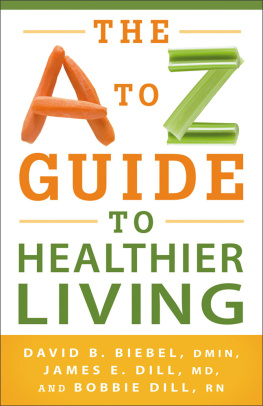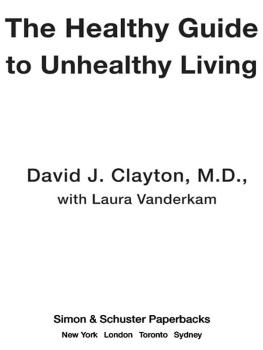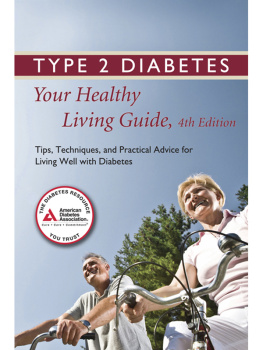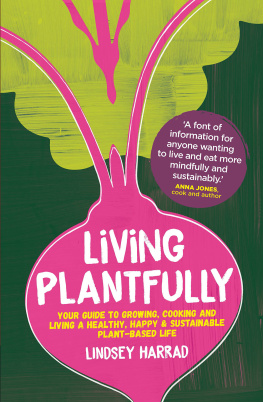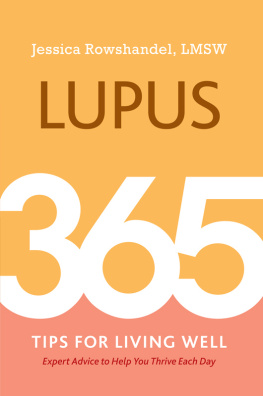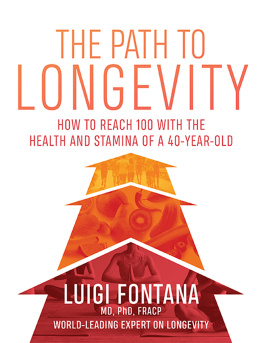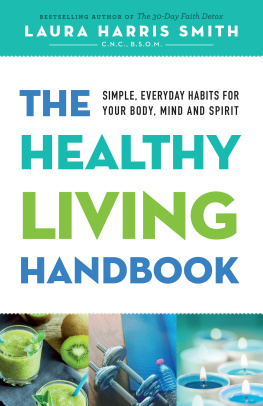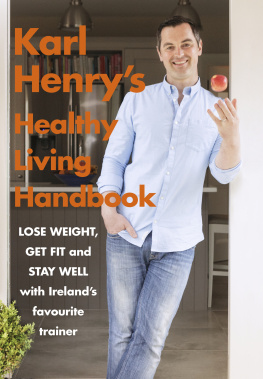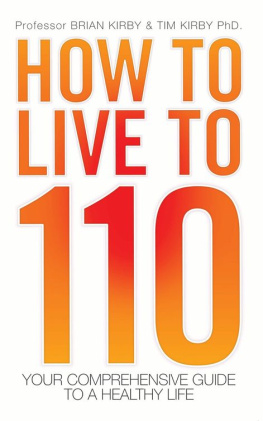W e wish to thank Sue Foster for her research and written contributions to the manuscript.
We wish to thank Betsy Dill for her valuable involvement in this project.
We wish to thank Dr. Robert Martin III for contributing the original text for the chapter entitled Save Your Skin.
When we say we or our, it means that we agree on the point in question. When we are describing our individual perspective or experience, we identify who is speaking in each case.
Neither the authors nor publisher are engaged in rendering medical, health, or any other kind of personal professional services in this book. Readers should consult their health professional before adopting any of the suggestions in this book or drawing inferences from the text. The authors and publisher specifically disclaim all responsibility for any liability, loss, or risk, personal or otherwise, which is incurred as a consequence, directly or indirectly, of the use and/or application of any of the contents in this book.
Introduction
Y ou want to live long; you want to age gracefully. And we want to help you do that.
But theres so much hype and hooey out there, its hard to know who to trust or where to start if you want to beat 70. Many people use supplements of one kind or another to try to slow the aging process, even though few products have any real science to offer in support of their longevity-related claims. Its not uncommon for baby boomers to show up in their doctors office with a bag full of bottles and the question, Doctor, which of these will do me the most good?
In a broader sense, that is the question we tried to answer in this book. Of the thousands of products and programs promoted via the Internet, advertising on TV and radio, print ads in magazines and newspapers, and even whole books touting one thing or another, with ample testimonies offered as proof, where does the health-conscious person start? This question is crucial, because with time rushing on and 50 million of your cells replacing themselves with each sentence you read on this page, you dont want to start down the wrong path if you can possibly avoid doing so.
Each chapter will show the health-enhancing, longevity-producing value of whatever that chapters topic is. In creating the text, we reviewed hundreds of documents and visited thousands of websites, then summarized the best and most reliable information we could find, applying the gold standard of research as often as possible. The gold standard requires that a scientific claim should be based on independent, placebo-controlled, randomized, double-blind research. While anecdotes may be helpful in pointing researchers in one possible direction of inquiry or another, the testimony of one or even a dozen individuals regarding the health-enhancing effects of one thing or another does not prove that anyone else could or should expect similar results.
The challenge in selecting our topics was not, How can we possibly come up with seventy chapters? Instead, it was more like, Which seventy of the hundreds of health- and longevity-related subjects will provide the average person with a reliable foundation for the pursuit of optimal health for themselves and those they love?
We started with the conviction that health is far more than the absence of disease and that it involves far more than the biological components upon which many people focus. Health and wholeness come from the same root word, implying soundness in body, mind, and spirit. To these we added relational health, which has been shown to have an effect on longevity.
As one of our friends says, health is not really a noun but a verb, because it is dynamic, always changing as the sum of the relative healthiness of the factors just mentioned. So we tried to emphasize that the hope of improving our health is there for anyone willing to make the changes that will take him or her in that direction.
We focused on prevention as much as possible, since it should be obvious to anyone with an interest in health that the treatment of disease is far more expensive and distressful than preventing that disease from occurring in the first place. We hope that this conviction will continue to spread, not only among laypeople but also among professional health care providers. Fact 1: Most chronic diseases are preventable. Fact 2: Spare body parts are hard to come by. Those who are waiting for science to fix everything that they have broken or may break in the future are playing Russian roulette with their cardiovascular system with each new supersized meal they consume.
We also focused on simple alternatives, well within the reach of anyone who chooses to adopt them. After all, the basic principles of health really are uncomplicated. For example, Grandma said, Eat your fruits and vegetables, and be sure to get enough roughage. Jesus said, Dont worry. Mother Teresa said, If we have no peace, it is because we have forgotten that we belong to each other. St. Augustine said, Love God, and do as you please!
The bottom line is that if you practice the principles in this book, you will be motivated and inspired and equipped to make changes that may be necessary. You will have a healthier living resource that you can trust and recommend. And you will have a scientific basis for practicing a faith-based healthier lifestyle.
In the process of creating this resource, we ourselves have been challenged and motivated to make changes in various health-related areas of our own lives. For we agree with Gandhis exhortation, Be the change you want to see in the world.
We are your fellow pilgrims on the way toward better health, affirming as we go that health and even longevity are not the true ends in themselves but a means to the end of fulfilling the purposes for which we remain here, with as much strength and vitality as we can manage, moment by moment, day by day.
Dave, Jim, and Bobbie
1
Accept Your Mortality
I dont want to achieve immortality through my work. I want to achieve it through not dying.
Woody Allen
N obody wants to die, but by the time were old enough to realize that dead means our pet cat wont be with us anymore, we begin to come to grips with the fact that everything and everyone will eventually die, including us. As much as anything else, how we adapt to that fact will affect how we choose to live.
Many people go to enormous lengths to ignore, deny, and battle against the reality of their mortality. The first gray hair they see, the laugh lines that were not there yesterday, the crows-feet, and the various aches and pains all announce that they are in fact aging even though they may still feel very young at heart. The cosmetic industry and anti-aging products, for example, offer a little false hope that the process can be stopped, or at least postponed a bit.

